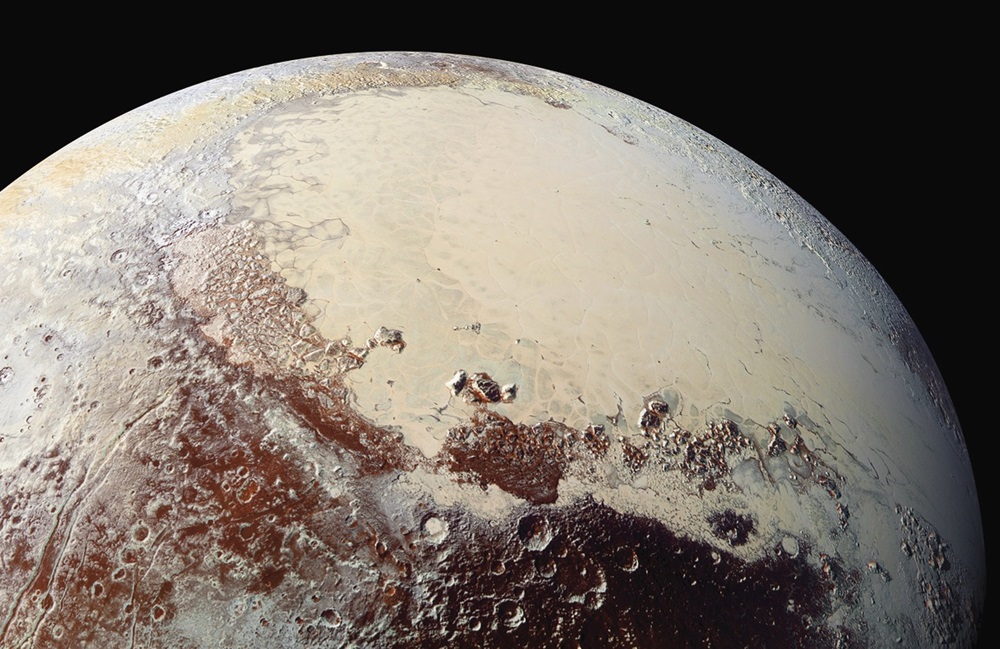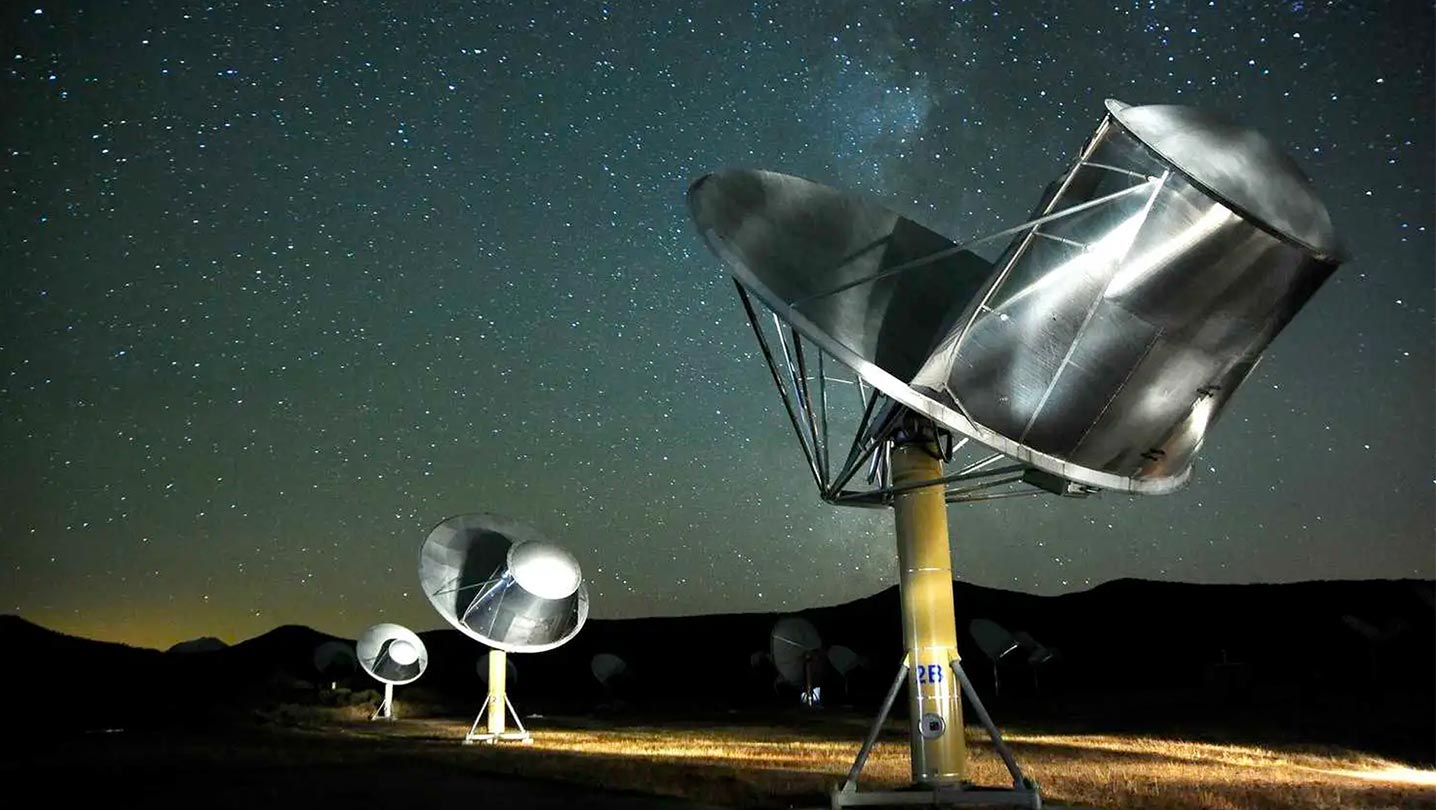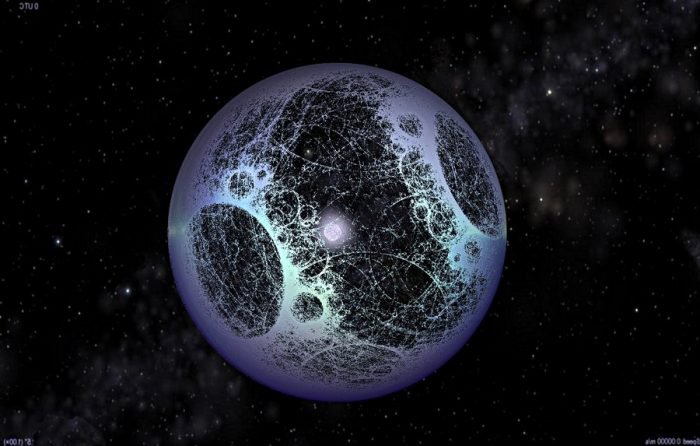Astronomy Cast more than 600 episodes ago. Are there any updates? Does Pluto have a chance of regaining planethood again?



Fraser Cain
Universe Today

Dr. Pamela Gay
CosmoQuest

Astronomy Cast more than 600 episodes ago. Are there any updates? Does Pluto have a chance of regaining planethood again?

Last week we talked about the various ways that astronomers could detect the presence of intelligent civilizations by observing technosignatures. This week we’ll give you an update on the state of searching for extraterrestrials. This field has gone from a collection of pariahs to a completely legitimate field of research. What’s changed?

Last week we talked about what it’s going to take to confirm basic biological life across the Solar System and the Milky Way. This week, we’ll discuss what it’s going to take to detect intelligent life out there in space.

Are we alone in the Universe? It’s one of the biggest scientific questions we can possibly ask. And yet, with rovers on Mars, missions planned to visit Europa and Ganymede. Powerful telescopes able to detect the atmospheres of exoplanets, we’re closer than ever to finding out the answer.
Recent Episodes
This week we find out when stars get torn apart from gravity, how we can see supermassive black holes, how liquid water could have existed on Mars in the past, and much more. If you've got a question for the Astronomy Cast team, please email it in to...
As we've mentioned before, the Universe is trying to kill you. And for astronauts, that's truer than ever. One step out into the vacuum of space would be a world of hurt for an unprotected astronaut: the freezing cold temperature, the lack of atmospheric pressure, and...
With Christmas just around the corner, we thought we'd investigate a mystery that has puzzled historians for hundreds of years. In the bible, the birth of Jesus was announced by a bright star in the sky that led the three wise men to his birthplace. What are some...
This week we find out the difference between an astronomer, an astrophysicist, and a cosmologist, the search for the stars that shared our nebula, hidden objects in Lagrange points, and much more.. If you've got a question for the Astronomy Cast team, please email it...
Space is totally inhospitable. If the freezing temperatures don't get you, the intense radiation will kill you. Or the vacuum, or the lack of breathable atmosphere, or meteoroid impacts. Well... you get the idea. That's why most space exploration is done by hardy...
This week we find out the distance between Betelgeuse and Bellatrex, how astronomers measure distance between objects, the possibility that an object could mess up the orbit of Earth, and the reason for different sizes of stars. If you've got a question for the...
In the old days, astronomers had to beg for telescope time. They'd put together a proposal, convince observatories to gather data for them, crunch that data and release the results. No telescope, no results. But everything's different now. Fleets of robotic telescopes...
Today, time rules our lives. We live each day with the moments broken up into hours, minutes and seconds. We never seem to have enough time. But can you imagine not being able to tell time at all, where the movements of the Sun and the stars was the only way to know...
As part of her trip to England, Pamela had a chance to sit down with Oxford astrophysicist Chris Lintott and record an episode of Astronomy Cast. From the first stars to the newest planets, molecules and the chemistry that allows them to form affects all aspects of...
It's time for a third lunar chapter. We've talked about the physical characteristics of the Moon, and the exploration. Now we're going to talk about the plans to return to the Moon. From the upcoming lunar reconnaissance orbiter to the plans to have humans set foot on...
This week we explore galactic spiral arms, seismic quakes on the Sun, and our picks for astronomy gear. If you've got a question for the Astronomy Cast team, please email it in to info@astronomycast.com and we'll try to tackle it for a future show. Please include your...
Let's continue on our journey to the Moon. Last week we talked about the physical characteristics of the Moon, its appearance in the sky and how it interacts with the Earth. This week we're going to take a look at how scientists have expanded our understanding of the...
Another week, another batch of questions. If ice disappears in your freezer, how can it last in space? How can the Universe be expanding faster than the speed of light? And what is the risk from a coronal mass ejection in an airplane? All this and even more questions....
Hey, here's a topic we haven't really gotten around to yet... the Moon. Today we look at our closest astronomical companion: the Moon. What impact does the Moon have on our lives, where did it come from, who walked on it, and are we ever going to walk on it again?...
We're back to a theme-less questions show. We're right across the Universe this time. Why are the planets lined up in a nice flat plane? Why are there no green stars? And is the Oort Cloud contaminating our understanding of the cosmic microwave background radiation?...
We say it all the time here on Astronomy Cast: the Universe is trying to kill us. This week, Pamela is joined by Dr. Phil Plait to discuss his new book, Death from the Skies. Phil and Pamela talk about asteroid strikes, solar flares and gamma ray bursts. Ep. 112:...
Everyone loves a theme. And this week we've collected together some of your questions about relativity. More light speed spacecraft, twin paradoxes, and the mixing up of gravity, time and mass. If you've got a question for the Astronomy Cast team, please email it in...
When you think about the best pictures in astronomy, almost every one is a nebula; the pillars of creation in the Eagle Nebula, or the complex Helix Nebula - or my personal favourite, the Ring Nebula. They're beautiful, wispy clouds of gas and dust that signify both...
Another week, another roundup of your questions. This week listeners asked: what is galactic dust anyway, and where does it come from? Why can photons move at the speed of light? And how can astronomers know what happened right after the Big Bang? And there's even...
You know what this show needs? More aliens. Since we don't seem to have any visiting right now, we're going to have to find some. SETI is an acronym. It stands for the Search for Extraterrestrial Intelligence. But there's more to SETI than just putting up a radio...